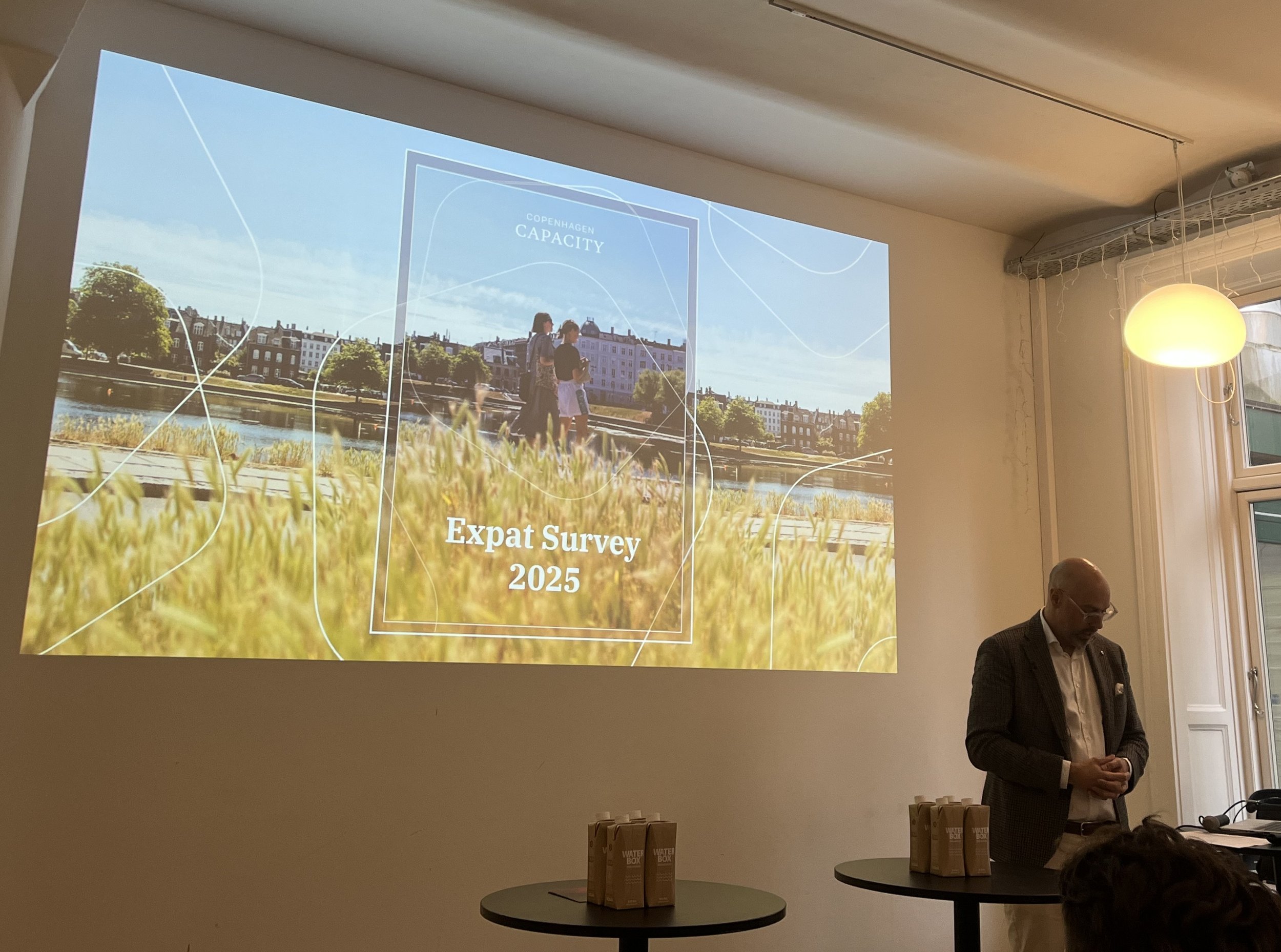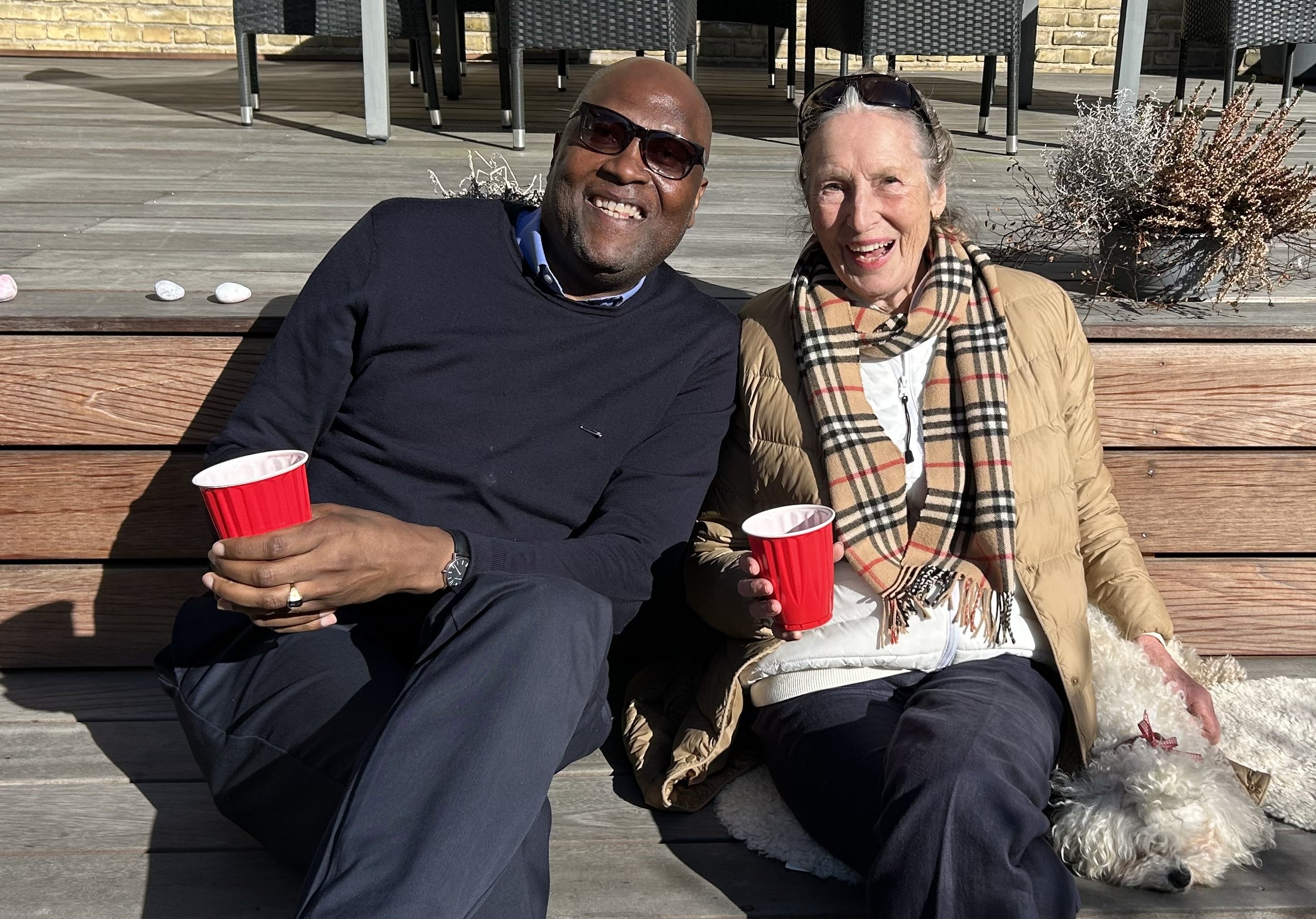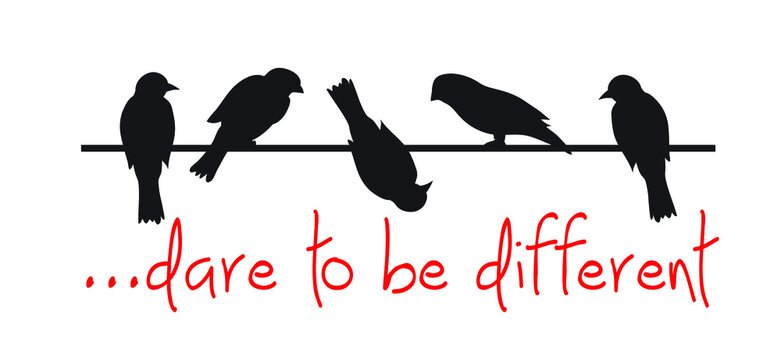Open-minded people do not care to be right; they care to understand. For them, the goal isn’t to win an argument but to expand their perspective. There is never simply a right or wrong answer, everything is about understanding. I think it’s also worth considering: while understanding is vital, there are times especially in matters of justice, science, or safety when distinguishing between right and wrong becomes necessary. And even in those cases, approaching the issue with a mindset of seeking understanding can lead to more compassionate and effective outcomes.
A philosophy of becoming
Strategy isn’t just a plan, it’s a mindset.
Who is your business becoming?
Who are you becoming as a leader?
What kind of world are we heading into?
In 1997, my brother-in-law saw it coming: a more connected world, faster internet, and a willingness to trade almost anything, for convenience and connection. The big question now is: What are you seeing ahead?
Think like a coach
I have written on numerous occasions about both the growth and fixed mindsets, but as I am currently studying for my ICF accreditation, I want to focus on the coaching mindset. Our mindset serves as the reference point by which we interpret our thoughts and frame the world around us. As coaches, having a coaching mindset is crucial. The more awareness we have both of our clients and of the coaching process itself, the deeper and more transformative our work with clients can be.
Change your mindset
Would you like to strengthen your confidence and boldness?
Over the past decade, you've likely heard about the difference between a fixed mindset and a growth mindset. The key to becoming mentally stronger lies in habits. Having studied habit formation for the past six years, I’ve learned that repetition is essential, and success depends on the systems and frameworks we put in place. Many people believe their brains are wired in a fixed way, making it difficult for them to challenge that notion. Self-regulation is tough, but as a coach, I am here to support you and hold you accountable.
Mind the gap
It’s all about bridging the gap, whether that gap is about money, experience, or opportunity. At the core, it starts with respect and reverence for where we’ve come from, but it doesn’t stop there. It’s going to take a mindset shift, one that challenges traditional leadership to step up, open the gates, and create space for people to show up as their most genuine, unfiltered selves. I think real change management is meeting people where they are and walking with them toward what’s possible.
From fixer to coach
As a trained coach, I’ve had to unlearn the habit of entering conversations with a fixer or problem-solver mindset. I'm still in the process of letting go of that tendency in favour of embracing genuine curiosity. I now actively practice asking questions that I don’t, and couldn’t possibly know the answers to. My role as a coach is to help uncover the root of any fears and support my clients in a safe environment, guiding them to decide what they truly want and how to address those fears.
What territory are we exploring in this session?
Personal? Professional? Community? Family? Friendships?
It doesn’t matter where we begin as these areas are all interconnected. My goal is to understand the whole person and help them explore whatever territory they wish to focus on in the session. What's useful for them is what truly matters. Contact me via e-mail for a free confidential 30 minute discovery.
Mindset matters
What are the triggers that influence where we fall on the fixed versus growth mindset continuum?
Mindset is shaped by a set of beliefs, and those beliefs are influenced by the people around us and the environment we’re in. It's important to understand that mindset isn’t just about effort. Simply telling ourselves to "try harder" doesn’t lead to true growth. A genuine growth mindset involves putting in effective effort - understanding whether the work you're doing is moving you towards your goals. I think it also means being open to seeking help, guidance, or coaching from others and being willing to pivot or adapt to learn, grow, and achieve the goals you’ve set.
Advice to my younger self
I was recently asked what advice I would give to my younger self. I thought it was a great question, I paused and answered like this…
”When evaluating a brand, company or organisation as a potential employer, it’s essential to consider whether they nurture a growth mindset, and one way to gauge this is by observing the diversity within their workforce. A company that values diverse backgrounds and perspectives is often open to new ideas and committed to evolving through inclusion. Additionally, look for evidence of learning and development programs, as these initiatives show that the company is dedicated to continuous improvement and is invested in helping employees grow alongside the organisation. Finally, when speaking with recruiters, ask whether the company seeks only "geniuses" who already know everything or if they value individuals willing to learn and adapt. Companies with a growth mindset prioritise potential and development over perfection, creating an environment where growth is encouraged at every level.”
What advice would you give to your younger self?
Send me an e-mail, and we can arrange to have an informal 30 minute discovery call. No strings attached.
How do you know?
Where does your team fall on the cultural mindset continuum (e.g., fixed vs. growth mindset)?
How can you recognise cultural features through your organisation’s cultural artifacts?
How do you structure the start and end of your meetings?
In what ways do you praise or acknowledge your team members' contributions?
How do you approach situations when team members make mistakes?
What practices, policies, and norms do you have in place that shape your culture?
Are you open to discussing your organisation's culture with me?
Feel free to contact me via email for a cultural review.
Mindset affects your resilience
Which mindset do you have?
In her book “Mindset: How You Can Fulfil Your Potential”, Carol Dweck (author and psychologist) challenges conventional thinking by exploring the concepts of fixed and growth mindsets and how they shape our attitudes, behaviours, and outcomes. I think it’s an oversimplification to think that we can only have one mindset. Most people believe they either have a growth or fixed mindset, but research shows we possess both. At times, we operate with a fixed mindset, and at other times, we adopt a growth mindset.
““Be who you are and say what you feel because those who mind don’t matter and those who matter don’t mind.””
Fine-tuning our minds
The words you use to frame your current situation will change your mindset and elevate your mood. A positive mindset allows you to stay open to new possibilities where others see barriers, and a positive mood will lift your spirits and attract people in your life who will help, support, or hire you. I think successful individuals in any field used positive words to frame an outcome. It's an imperfect world, and despite hours of practice and years of experience, the ball won't always bounce your way, you'll be dealt a bad hand, or an unprecedented pandemic will shift your plans.
““We dance round in a ring and suppose,
But the secret sits in the middle and knows.””
Self talk is crucial
Paradigms can be thought of as mental programs that largely dictate our habitual behaviour, as most of our actions are driven by habits. Our brains constantly seek validation for our beliefs, a phenomenon known as confirmation bias. For instance, if you believe "nothing ever goes my way," your brain will highlight everything that confirms that belief. On the other hand, if you tell yourself, "I know things can get better," your brain will begin to find evidence to support this idea. Your mind is simply performing its function by actively searching for proof to reinforce the reality you've constructed in your thoughts. Therefore, I think it's crucial to remember that you have the power to influence the world around you through your mindset.
Activating a cognitive process
Your mindset is a set of beliefs that shape how you make sense of the world and yourself. I think your skills can open doors, but your mindset determines how far you go. According to Stanford University, 80% of people believe that mindset contributes more to success than innate talent. A strong mindset enables you to:
Set bigger dreams
Be grateful every day
Recover faster from setbacks
It's not the smartest people who win, but those who dream big and never give up.
““Great minds discuss ideas; Average minds discuss events; Small minds discuss people.””
Tips on Thursday
To build an unshakable mindset:
• Lead by example
• Do the right thing
• Control your feelings
• Control your thoughts
• Ignore others' opinions
• Start acting on your dreams
• Control your interpretations
• Focus on what you can control
A thought process
The environment you are in has either a growth mindset or a fixed mindset. A growth mindset is when you are open to challenges, see failures as opportunities for growth, and believe that abilities and intelligence can be developed over time with dedication and effort. A fixed mindset, on the other hand, is when you believe that intelligence and abilities are static traits, leading to a desire to prove oneself and a fear of failure that can hinder learning and personal development. Send me an email in confidence to let me know which mindset characterises your environment?
Dare to be different
Our infatuation with violence has given rise to a culture that should not be a source of pride. This is due to the fact that violence sells, we are all familiar with the saying, "If it bleeds, it leads," but this approach does not contribute to the development of a culture worth celebrating. Instead, I think we should adopt the mindset of not caring about the number of followers we have and refrain from pressing the boost button, as our primary goal should not be to appease platforms like Facebook, Instagram, or Twitter. Our true objective is to create a body of work that brings us a sense of pride, focusing on cultivating a modest but dedicated audience that can provide support, be it 10, 100, 1,000, or 10,000 individuals. Once we become comfortable with having enough in a world of endless possibilities, the amount of noise we generate becomes inconsequential.
Think differently
Image c/o Vector Stock ©
Authentic leaders know they can learn a lot from those that think differently than they do. Leadership is not just about skills and abilities, it’s more about having the right mindset to inspire and empower others. The most successful leaders are really good at keeping people informed and making them feel valued.
““I’m a big believer ability takes you so far and personality takes you that extra yard. When you’re a player it is down to you to go out and perform. You need leaders, people who drive standards in training and on the pitch with the intensity levels.” ”
Unlocking internal barriers
Today is Monday, so I feel it necessary to write about mindset, motivation, and methods. Do you really want to know about these topics? There is a lot of sacrifice, especially at the beginning if we are going to achieve our goals. We can understand it intellectually, and then we need a system to act on what we know. Accountability feels like an attack when you’re not ready to acknowledge how your behaviour harms others. I have seen brilliant creative ideas die very quickly when they don’t have a proper execution structure behind them. Personally, I’m not impressed by vanity metrics, like likes and views. I think that we can only drive through effective campaign execution with thoughtful communication strategies and architectures.
We reap what we sow
Intelligence is the ability to change your mind when presented with accurate information that contradicts your belief.
Closed mindset
Talking
Argumentative
Taking
Arrogant
Defensive
Blaming
Rigid
Open mindset
Listening
Empathetic
Giving
Humble
Collaborative
Educating
Adaptive
Sunday mantra
Our minds are a center of Divine operation and Divine operation means expression into something better than has gone before. To get good results we must properly understand our relation to the great impersonal power we are using. It is intelligent and we are intelligent, and the two intelligences must cooperate.





















